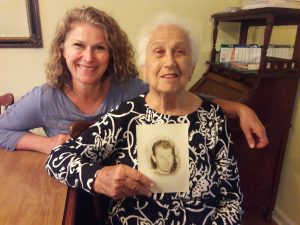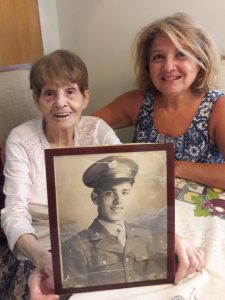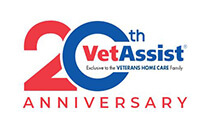VA Pension Benefits for Widows of Wartime Veterans
Widows of wartime veterans, or surviving spouses of deceased wartime veterans, may be eligible for a benefit from the Department of Veterans Affairs (VA) known as “Survivors Pension with Aid and Attendance”. Unfortunately many women are unaware that they are eligible for this benefit.
What is the Survivors Pension with Aid and Attendance?
The Survivors Pension is a tax-free monetary benefit from the VA. If you’re a surviving spouse of a deceased veteran with wartime service, and your income and net worth meet certain limits set by Congress, you may be able to get this benefit. If you need help with your daily activities, you may qualify for additional Aid and Attendance funds.
The maximum Survivors Pension with additional Aid and Attendance funds is up to $1,432 per month.
Many women are overlooked when it comes to VA Benefits
It’s unfortunate but we often overlook the fact that wartime veterans are eligible for VA benefits even though they were not injured during service. Many don’t realize that you didn’t have to serve in combat or overseas to qualify for what is called the Aid and Attendance benefit. You can imagine if veterans themselves are unaware of the Aid and Attendance benefit, how many widows of qualifying veterans are also unaware that they qualify?
We’ve actually helped more widows than veterans
Did you know since 2003, we’ve helped more than 20,000 people apply and receive the VA’s Aid and Attendance Pension? Did you know that the majority of the people that we’ve helped access the Aid and Attendance Pension were the surviving spouses of a veteran?
Simplifying VA Aid and Attendance Pension Eligibility for Widows
To check your eligibility as a surviving spouse, start with four main qualifications or “must-haves” for the VA pension with Aid and Attendance:
- Military, 2. Medical and 3. Money 4. Marriage
Do You Meet the “4-Ms” For a Surviving Spouse to Qualify?
1) Military: Was your spouse a veteran who served at least 90 days on active duty, at least one day during wartime, with an honorable or general discharge? (Persian Gulf War veterans must have two years of active duty or the full period for which they were called for active duty.)
Did your spouse serve during one of the VA Defined War Periods?
- World War II: December 7, 1941-December 31, 1946
- Korean Conflict: June 27, 1950-January 31, 1955
- Vietnam Era: Nov 1, 1955-May 7, 1975. Veterans that served after August 5, 1964 may have served outside the Republic of Vietnam.
- Persian Gulf War: August 2, 1990- date to be prescribed by Presidential Proclamation or law. Persian Gulf veterans must have served active duty for two years or the full period for which they were called for active duty.
2) Medical: Do you have a medical condition causing you to need assistance with activities of daily living?
3) Money: Do you have a net worth at or under $150,538? (Your primary residence and car are exempt. Ongoing, non-reimbursable medical and long term care expenses may reduce your net worth.)
4) Marriage: Were you married to a wartime veteran for at least one year? Were you married to the veteran at the time of his/her death? Have you remained unmarried or did your remarry after January 1, 1971 and your remarriage ended before November 11, 1990?
If you answered “yes” to all of the four must-have requirements above, you meet the basic eligibility requirements and should consider applying for Aid and Attendance from the VA.
Aid and Attendance for Long Term Care
Aid and Attendance is available for those who need the “aid and attendance” of another person for their routine daily living activities on a permanent basis. Often as women age, they need assistance with activities of daily living such as: dressing, bathing, help using the bathroom, meal preparation, laundry and more. This type of assistance is considered “custodial care” even though the need for custodial care is often caused by a medical condition such as congenital heart failure, arthritis, diabetes, etc. When custodial care is needed permanently, health insurance such as Medicare will not cover the cost. On-going custodial care is considered “long-term care.” Fortunately, the VA’s Aid and Attendance benefit can help with the cost of long term care.
“Aid and Attendance” Surviving Spouse Eligibility
Surviving spouses must meet a set of requirements in order to qualify for VA pension benefits:
- You must have been married to a veteran for at least one year.
- You must have been married to a veteran at the time of his death.
- You must present your veteran spouse’s death certificate.
Remarriage does not affect your surviving spouse eligibility for “Aid and Attendance” if you meet all the following requirements:
- You were married to your veteran spouse at the time of his death.
- Your remarriage began after January 1, 1971.
- Your remarriage ended before November 11, 1990.
Remarriage outside the specified dates will disqualify you from VA pension benefits.
You may have what it takes to be eligible for the “Aid & Attendance” benefit.











